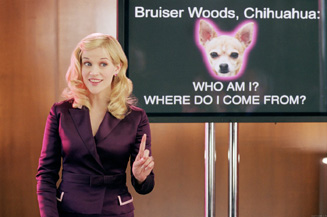A-List:
Inexplicably Popular Sequels
By David Mumpower
June 8, 2011
Once word got out about the quality of 2 Fast 2 Furious, consumers stopped going. Still, the global appeal of cars is obvious throughout the history of this franchise, which explains the Tokyo Drift concept for the third title. While The Fast and the Furious earned “only” $62 million internationally, its sequel made a whopping (for the time) $109 million, giving it a global tally of $236.2 million. That’s a full $30 million more than the better film with a more bankable lead.
Made with a large production budget by 2003 standards of $76 million, 2 Fast 2 Furious financially justified every decision made. This is emphatically demonstrated by the fact that the better received, better remembered potential tentpole film Diesel chose to make instead, xXx, had a higher negative cost of $120 million yet didn’t perform much stronger domestically or worldwide. It wound up earning $141.9 million domestically and $267 million globally. Diesel eventually recognized that the grass wasn’t always greener and his return to the Furious franchise has been mega-lucrative for all involved. Meanwhile, the potential xXx franchise died on the vine with Ice Cube as the lead.
Ocean’s Twelve
Ocean’s Eleven is one of the wittiest movies of our lifetime. Its crackling dialog sparkles from start to finish and it even contains throwaway bits funnier than most films (like The Hangover II) manage at any point. For instance, Rusty is never seen without food in the entire movie. I am not sure there is any reason for this; it’s just funny to have a ripped dude like Brad Pitt pig out the entire time. And the sequence when George Clooney and Brad Pitt walk out into the street of adoring fans and they get knocked out of the way in favor of Topher Grace will never stop being funny.
Sadly, Topher Grace is the only entertaining part of Ocean’s Twelve. I mean this. In a woe begotten series of unlikely events featuring a remarkably athletic Frenchman and a Julia Roberts impersonator played by Julia Roberts, the only highlight in the entire movie is a Topher Grace cameo. He shows up, he makes fun of an excellent but already forgotten movie he did called In Good Company (a precursor of sorts to Clooney’s more celebrated Up in the Air), and he’s gone. For those few moments, Ocean’s Twelve reminds us of the composed genius of its predecessor. After he’s gone, the movie careens into a series of equally implausible subplots, none of which offers any satisfaction.
I would point out that to their credit, the Ocean’s franchise production team gets their house in order with Ocean’s Thirteen, a solid title that even provides closure for a subplot from Ocean’s Twelve. Still, the mere existence of this movie pains me as a superfan of Ocean’s Eleven. It’s a great example of a film that hurt the brand even though the box office doesn’t indicate it. Ocean’s Twelve earned $125 million domestically and a solid $363 million worldwide against a production budget of only $85 million. It’s a blockbuster in every sense of the word except for quality.
Alas, the lingering bad taste of Ocean’s Twelve negatively impacted the better received Ocean’s Thirteen. The third film managed only $117.1 million domestically and $312 million worldwide. These are both lows for the franchise to date. This is hard to explain given that it is better reviewed (70% to 55% at Rotten Tomatoes) and better remembered (6.9 to 6.1 on IMDb) than the second film. These two titles exemplify the precarious nature of franchise building in Hollywood. A single monstrosity can negatively impact a franchise indefinitely. And this leads us to the final film up for discussion…
Continued:
1
2
3
4
|
|
|
|

![]() Tweet
Tweet
![]() Print this column
Print this column



